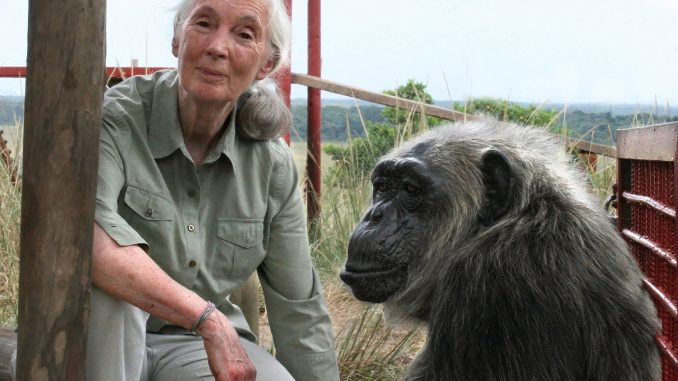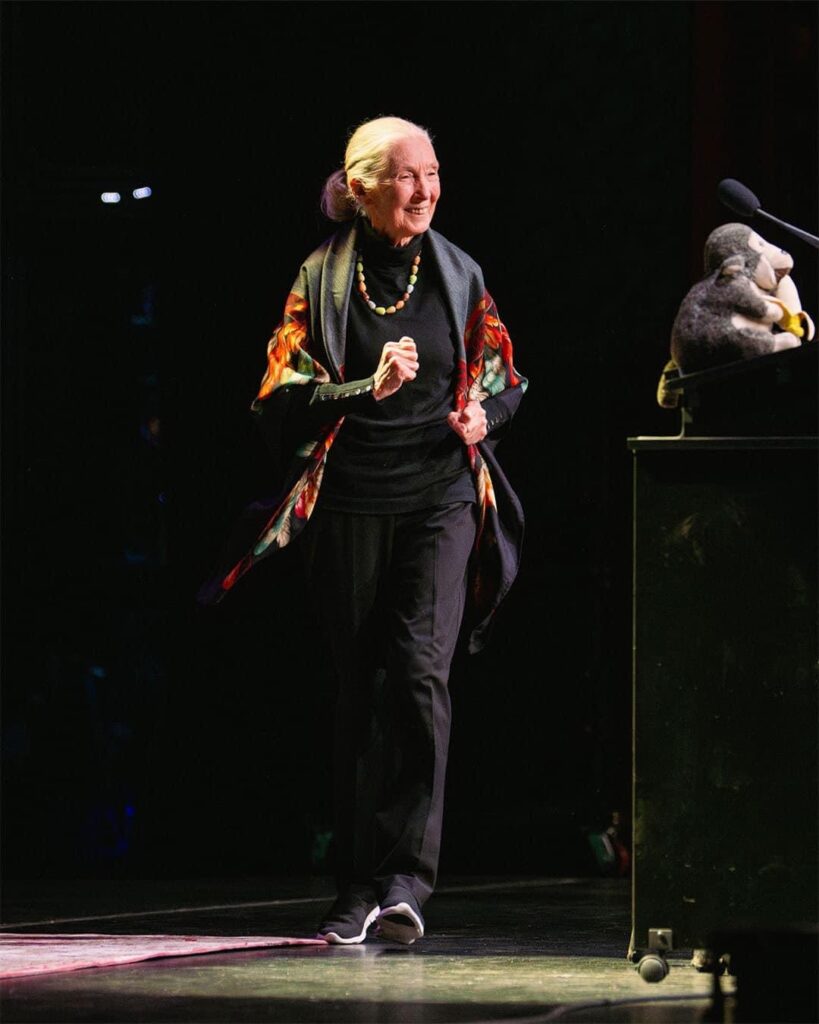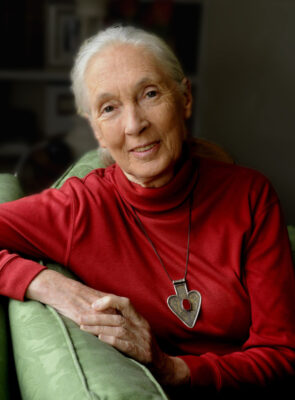
Dr. Jane Goodall, born on April 3, 1934, in London, embarked on a groundbreaking journey to Gombe Stream National Park in Tanzania at 26, with no formal scientific training. Under the mentorship of anthropologist Louis Leakey, she began her intimate study of chimpanzees, revealing their complex social behaviors and emotional depth.

(Courtesy of MSG)
Her observations challenged previous scientific beliefs, proving that chimpanzees make and use tools, a trait once thought to be uniquely human. Goodall’s work transcended research; she became a global icon of conservation and animal welfare. Founding the Jane Goodall Institute in 1977, she has inspired generations to respect and protect the natural world, embodying a lifelong commitment to conservation and empathy towards all living beings.
On April 1, hundreds of fans, conservationists, colleagues and donors took their seats at The Beacon Theatre in Manhattan to attentively glean wisdom from the legendary Dr. Goodall.
The ticketed event was, in addition to a celebration of her 90th birthday, an insightful perspective on why it is critical for people to make conservation efforts a priority to cherish this spinning rock we call earth.
Goodall, born just before World War II began, shared some of her earliest memories of her lifelong love of animals.
“Some of you know, I was born loving animals, all animals,” Goodall said. “My mother nurtured this love of animals that I had. When I was just one and a half years old, I don’t remember this, but she told me, and she said, ‘Well, you know, I came into your room to say goodnight to you and there were all these earthworms in your bed; you were watching them so intently. I think you must have been wondering how did they walk without legs.’ Anyway, she just simply said they might die if we didn’t take them back into the garden so, that’s what we did. I spent hours and hours out in the garden, watching insects and birds and squirrels, and anything that I could find.”

Goodall was five when the war began. Books were her source of entertainment.
“I remember the first book that really, really made an impression on me; it was The Story of Doctor Dolittle (1920) when he took animals from the circus and released them back into Africa,” Goodall said. “I was fascinated by Africa and islands and things like that.”
She remembers when she was 10 years old, crawling around on the floor of a secondhand bookshop in England on Saturdays to devour books.
“I found this little cheap edition of Tarzan of the Apes (1912); I read a couple of paragraphs and I had saved up just enough money to buy it,” Goodall said. “I took it up into my favorite tree in my grandmother’s garden. I fell passionately in love with this glorious lord of the jungle. And what did he do? He married the wrong Jane.”
The audience roared with laughter and applauded in delight.
“That’s where my dream began,” Goodall said. “I will go to Africa live with wild animals to write books about them.”
Goodall is the author of numerous books including her most recent hardcovers, Local Voices, Local Choices: The Tacare Approach to Community-Led Conservation and The Book of Hope: A Survival Guide for Trying Times.
Her life is the subject of numerous television and film projects, including the IMAX film Jane Goodall: Reasons for Hope, which is currently playing in select theaters across North America. She is the inspiration behind the Emmy-winning children’s series JANE, which is streaming on Apple+, and National Geographic Society’s immersive museum exhibit “Becoming Jane.”
Visit www.janegoodall.org to learn more about Goodall and the foundation or to make a donation.

